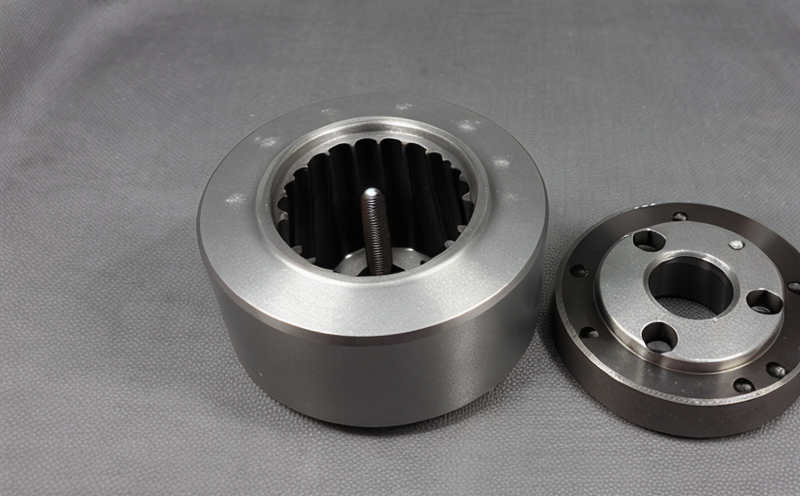ASTM F3122 Standard Guide for AM Metals Mechanical Testing
The ASTM F3122 standard guide is a pivotal document in the additive manufacturing (AM) and metallurgy sectors. It provides guidance on mechanical testing of metals used in additive manufacturing processes, ensuring that these materials meet stringent quality standards before they are incorporated into products or components.
Additive manufacturing allows for the creation of complex geometries with enhanced performance characteristics. However, this process also introduces new challenges regarding material consistency and reliability. ASTM F3122 addresses these issues by detailing methods to evaluate the mechanical properties of AM metals, which is crucial for ensuring that the materials are suitable for their intended applications.
Understanding the metallurgical behavior under various conditions helps in optimizing the manufacturing parameters and selecting appropriate alloys. This standard guide not only aids in process control but also supports the development of new materials by providing consistent testing protocols.
The ASTM F3122 framework is essential for both quality assurance (QA) and reliability assurance (RA). QA ensures that processes are consistently producing parts with acceptable properties, while RA focuses on ensuring the long-term performance and durability of these parts. This standard helps to bridge the gap between research and manufacturing by providing a clear roadmap for testing.
By adhering to ASTM F3122, manufacturers can ensure that their products meet international standards and are fit for purpose across various industries including aerospace, automotive, medical devices, and more. The guide emphasizes the importance of traceability throughout the supply chain, from raw materials to finished parts, ensuring transparency in material handling.
The mechanical testing outlined in ASTM F3122 includes a range of techniques such as tensile testing, hardness testing, impact testing, and microhardness testing. These tests are designed to assess various aspects of material behavior including strength, ductility, toughness, and wear resistance. Each test requires careful preparation of the specimen, which can involve slicing from large AM parts or using small samples created specifically for testing purposes.
It is important to note that the choice of specimen size and geometry plays a crucial role in interpreting the results accurately. ASTM F3122 provides detailed instructions on how to prepare specimens to ensure they represent the actual conditions under which the material will be used. This includes considerations such as orientation, heat treatment, and surface finish.
The instrumentation used for these tests must meet specific requirements outlined in the standard. For example, tensile testing machines should have high precision and accuracy to provide reliable data on stress-strain relationships. Similarly, hardness testers need to be capable of measuring different scales depending on the material being tested. Proper calibration and validation are essential components of any mechanical testing laboratory.
The reporting process for ASTM F3122-compliant tests is also standardized. This includes documenting all relevant parameters such as test conditions, specimen preparation details, and results obtained. The report should be comprehensive enough to allow other laboratories or auditors to replicate the same tests if necessary.
In conclusion, ASTM F3122 serves as an indispensable tool for any organization involved in additive manufacturing of metals. Its focus on mechanical testing ensures that materials used in AM processes are reliable and consistent, thereby enhancing product quality and safety across multiple sectors.
Why Choose This Test
- Avoids discrepancies in material quality across different batches.
- Ensures consistency and reliability of materials used in additive manufacturing processes.
- Promotes best practices for mechanical testing within the metallurgy sector.
- Facilitates easier compliance with international standards, enhancing global market access.
The ASTM F3122 standard guide is essential for organizations aiming to maintain high standards of quality and reliability in their additive manufacturing processes. By adhering to this guide, they can ensure that their products meet stringent testing requirements and are fit for purpose across various industries.
Quality and Reliability Assurance
- Achieves consistent results through standardized testing protocols.
- Ensures traceability from raw materials to finished parts, enhancing transparency in the supply chain.
- Promotes confidence among stakeholders regarding material integrity and performance.
The ASTM F3122 standard guide plays a crucial role in supporting quality assurance and reliability assurance initiatives. Its focus on mechanical testing ensures that additive manufactured metals meet high standards, thereby enhancing product quality and safety across multiple sectors.
International Acceptance and Recognition
The ASTM F3122 standard guide is widely recognized and accepted in the international community for its rigorous approach to mechanical testing of metals used in additive manufacturing processes. Compliance with this standard enhances global market access by ensuring that products meet stringent quality standards.
Many leading organizations around the world rely on ASTM F3122 as a benchmark for assessing material performance in AM processes. By adhering to these guidelines, companies can demonstrate their commitment to excellence and build trust with customers who demand high-quality materials and products.





